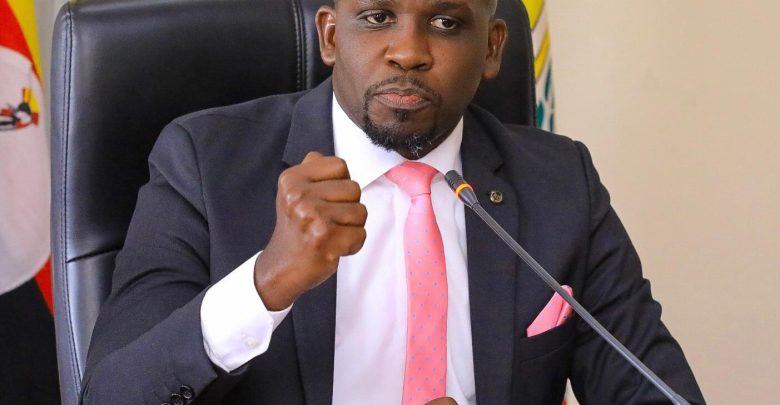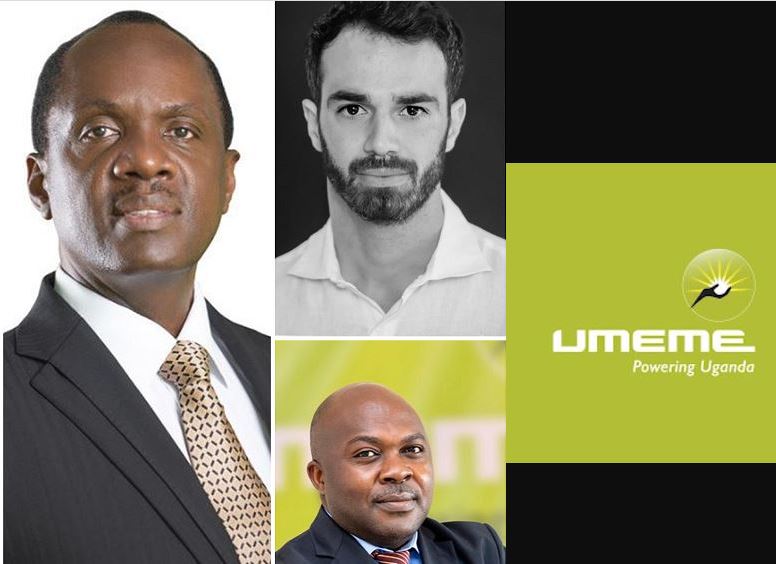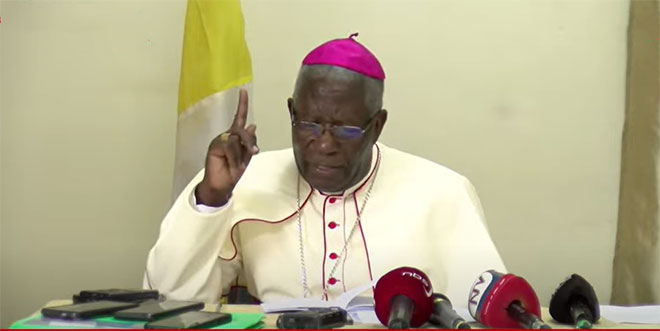Equity Group reports a 21% growth to record a Kshs.1.54 trillion in Total Assets and 8% growth in Profit after tax of Kshs.12.8 billion
Nairobi May 16th 2023…… Equity Group has weathered a turbulent macroeconomic environment to register a 21% growth with total assets reaching Kshs.1,537.7 billion. Funding the asset growth is a 23% growth in customer deposits with the proceeds deployed to grow loan the book by 21%. Customer deposits grew to Kshs.1,111.2 billion up from Kshs.900.9 billion while the loan book grew to Kshs.756.3 billion up from Kshs.623.6 billion.Speaking while releasing the Q1 2023 results, Dr. James Mwangi, Equity Group Managing Director and CEO said, “The strong growth speaks to the Group’s embedded social and trust capital that has seen the Group’s brand rated the 4th strongest financial brand on Earth. We are working to anchor the strength of the brand on customer experience, its capabilities and superior product offering.”
The Group’s regional expansion and product diversification strategy has delivered an almost 50:50 split of business between the anchor Kenya business and the regional banking subsidiaries and non-banking business.
| Area of Performance | Kenya Business | Regional/Non-Banking Subsidiaries | DRC |
| Total Assets | 55% | 45% | 29.90% |
| Total Deposits | 53% | 47% | 33.30% |
| Loans | 59% | 41% | 25.60% |
| Gross Revenue | 50% | 50% | 30.70% |
| Profit After Tax | 53% | 47% | 26.60% |
“We have become a truly regional and diversified business,” added Dr. Mwangi.
The Group’s business has recorded recovery and growth momentum after the tough COVID-19 operating environment. The value of transactions in branches has grown by 40% to 990.5 billion up from 708.3 billion transactions. The value of transactions on Agency channels has grown by 44% to 681.6 billion transactions, up from 472.3 billion transactions.
“The COVID environment acted as a tailwind for digital transactions adoption by our customers and we have emerged out of the 3-year pandemic period as a strong digital business,” said Dr. Mwangi.
The fintech/digital capabilities of the Group continued to be strengthened by the successful rollout of the interoperable universal digital payments platform, Pay with Equity (PwE), whose transactions volume grew by 243% to 48.3 million transactions up from 14.1 million transactions. Mobile and internet banking transactions grew by 270% to 1,336.3 million transactions up from 361.6 million transactions. Transaction income grew by 73% to Kshs.4,119.6 million up from Kshs.2,388 million.
The business has evolved to online and digital;
- 98% of all transactions happen outside of the branch.
- 96% of all transactions are happening on 3rd party and self-service platforms delivering 70% of value of transactions.
- 87% of all loans are being processed on mobile channels.
- 82% of all transactions are cashless.
- Digital transactions grew by 23.3% to Kshs. 2,288.8 billion from Kshs. 1,856.6 billion while digital payments grew by 171% to Kshs 54.2 billion from Kshs 20 billion.
The Group registered a Profit After Tax growth of 8% of Kshs.12.8 billion, up from Kshs.11.9 billion. Profit Before Tax grew by 10% to Kshs.16.9 billion up from Kshs.15.3 billion. Profitability was driven by non-funded income of Kshs.18 billion up 57% from Kshs.11.5b billion, which contributed 45% of total income reflecting the improving quality of Group earnings.
Gross trade finance income grew by 100% to Kshs.2.4 billion up from Kshs.1.2 billion while Trade finance guarantees, and off-balance sheet volume grew by 39% to Kshs.167 billion up from Kshs.120 billion. Forex income registered a growth of 160% to Kshs.5.2 billion up from Kshs.2 billion.
Despite the 57% growth in non-funded income, total income grew by 28% to Kshs.39.7 billion up from Kshs.30.9 billion as a result of slow growth in interest income of 21% to Kshs.32.4 billion up from Kshs.26.7 billion, while the corresponding interest expenses grew by more than double the rate of interest income growth at 47% to Kshs.10.7 billion up from Kshs.7.3 billion. Yields on interest earning assets increased to 10.3% up from 9.5% but net interest margin stagnated at 6.8% as a result of increase in cost of funds which grew to 3.5% up from 2.7%. The increase reflects the challenging macroeconomic operating environment characterized by stubborn high inflation and high interest rates.
Further to the slow growth in net interest income of 12% due to the slower growth in interest income of 21% compared to the 47% growth in interest expense, business was not spared by growth in total costs which grew by 46% to Kshs.22.8 billion up from Kshs. 15.6 billion. The costs were primarily driven by 127% growth in loan loss provision of Kshs.3.1 billion up from Kshs.1.4 billion, staff cost growth of 33% to Kshs.6.6 billion up from Kshs. 5.0 billion and other operating expenses growth of 42% to Kshs.13.1 billion up from Kshs. 9.2 billion.
The growth in other operating costs was driven by massive business transformation expenses to accommodate innovation and technology investments for digital transformation and business readiness for the next level of growth, as well as the effect of rising inflation and currency depreciation. Growth in staff costs reflected the strengthening of the management bench in keeping with growth in size, complexity, and sophistication of the transformed business. The 33% staff cost increase and 42% growth in other operating expenses combined to raise the cost income ratio to 49.1% up from 45.3%. Despite the current cost growth and continued investment in business transformation, there is an opportunity to focus on cost optimization, efficiency pursuit and productivity gains to strengthen value, digitization and the business transformation will lead to efficiency in the Group.
The increase in loan loss provision of 127% to Kshs. 3.1 billion up from Kshs.1.4 billion raised the cost of risk to 1.9% up from 1.2% and was caused by a slight deterioration in NPLs to 9.1% up from 8.65%. The background of a turbulent macroeconomic environment characterized by sticky inflation, high interest and the depreciation of the Kenya shilling against the US dollar justified the need for caution and prudence in provision.
Despite the challenging operating environment, the offensive strategy has produced 21% growth in total assets and 23% growth in customer deposits, anchored on enhanced brand image through greater social impact investments. These focused on financial inclusion and entrepreneurship training, investments in host communities where refugees reside, capacity building in agriculture and access to affordable healthcare while supporting social safety nets for marginalized populations such as refugees, orphans, the elderly and physically challenged; and spearheading environmental and social sustainability initiatives for communities and society.
Equity Group Foundation, our social arm and engine has 40,000 scholars in high school between Form 1 and 4 on full and comprehensive scholarship that covers school fees, uniforms, pocket money, transport, shopping, and medical expenses. 3.87 million farmers have been supported to transit from peasant farming to agri-businesses. 4.89 million households have been supported to receive regular social payments and stipends to ease the challenges of life while 81 Equity Afia medical centres have been opened to address the health needs of host communities by offering high quality affordable medical services and have attended to over 1.48 million patients cumulatively. 21.8 million trees have been planted as Equity’s contribution to ease adverse environmental change while 386,120 households have been afforded clean and renewable energy devices and equipment for domestic use as well as funding of schools to transit from wood fuel driven kitchens to cleaner energy solutions such as LPG fuels. 432,242 youth and women have been trained and funded under the Young Africa Works program to start businesses creating employment for 1.3 million young people.
The defensive strategy has positioned the Group resiliently to benefit from the recovery from the COVID- 19 environment, the digital transformation and weathering the challenges of the turbulent macroeconomic environment. The Group enjoys a defensive and agile balance sheet characterized by high liquidity with cash holdings growing by 55% to Kshs.258.4 billion up from Kshs.166.4 billion to constitute 17% of the total Group balance sheet assets. Government securities and cash add up to Kshs.650.9 billion to constitute 43% of the entire Group balance sheet.
The Group has recorded a 9.1% NPL ratio, which compares relatively well with the industry NPL average ratio of 14%. The NPL coverage of 88%, loan to deposit ratio of 68.1% and liquidity ratio of 51.5% positions the Group defensively. In spite of the strong defensive position, the Group continues to generate competitive returns to shareholders with return on average equity (ROAE) standing at 27.5%, up from 27.4% and return on average assets (ROAA) strong at 3.5%. Capital buffers remain high as core capital to total risk weighted assets stood at 15.5% against the regulatory minimum of 10.5% and total capital to total risk weighted assets standing at 19.8% against the regulatory minimum requirement of 14.5%.
The strong financial indicators not only strategically position the Group, but grants it competitive tools and capabilities for execution and a competitive market leadership position armed with an agile and solid balance sheet and an effective economic and social engine:
- 17% of Total Assets being cash
- 43% of Total Assets being cash and government securities
- 88% NPL Coverage in terms of provisions
- 1% loan to deposit ratio
- 5% Liquidity
- 8% Strong total capital to total risk weighted asset ratio.
Equity’s strong cash and liquidity position, strong momentum of growth and performance, strong asset buffers in provisions and capital buffers position the institution well to unleash its offensive growth strategy either opportunistically through mergers and acquisitions or via organic growth riding on its strong brand and digital capabilities, strong entrepreneurial and managerial depth and the Group reputation of a steadfast governance structure, practices, and execution capabilities.
Equity Group Managing Director and CEO, Dr. James Mwangi addresses analysts and guests during the Quarter One 2023 Investor Briefing event.
Equity Group Managing Director and CEO, Dr. James Mwangi (left), Equity Group Director, Strategic Partnerships, Collaborations and Investor Relations Brent Malahay (centre) and Equity Bank Rwanda Managing Director Hannington Namara (right) during the Quarter One 2023 Investor Briefing event.



